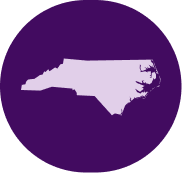Case Summary
Holmes v. Moore was a state court challenge to the legislation implementing North Carolina’s voter ID constitutional amendment, SB 824, which the General Assembly passed during a lame-duck special session in late 2018. On the same day that the General Assembly overrode the Governor’s veto, Southern Coalition for Social Justice filed this lawsuit in Wake County Superior Court on behalf of six individual plaintiffs (Jabari Holmes, Fred Culp, Daniel E. Smith, Brendon Jaden Peay, Shakoya Carrie Brown, and Paul Kearney, Sr.) with co-counsel from Paul Weiss.
After a three week bench trial, the state trial court held that North Carolina's voter ID restriction in SB 824 was enacted with discriminatory intent and had a discriminatory impact on Black voters. In 2022, the North Carolina Supreme Court affirmed the trial court's decision. After the North Carolina changed partisan composition following the 2022 general election, the court reheard and reversed its earlier decision in 2023 in an unprecedented procedural posture, and by changing the standard for proving intentional discrimination to require direct evidence in an upheaval of long established precedent.
Why it's Important
Discriminatory voter ID can prevent historically disenfranchised voters from successfully casting a ballot, and can discourage voters who lack qualifying ID from even attempting to vote. A preliminary injunction successfully prevented implementation of the law for the 2018, 2020, and 2022 elections.
Other Related Cases
Kivett v. North Carolina State Board of Elections
SCSJ and co-counsel submitted an amicus brief at the NC Court of Appeals and the Supreme Court to protect absentee military and overseas voters.
Learn MoreRepublican National Committee v. North Carolina State Board of Elections, et. al.
The Republican National Committee (RNC) and the North Carolina Republican Party filed a complaint on Sept. 12 to stop University of North Carolina at Chapel Hill (UNC) students from using their digital Mobile One Cards as identification cards to vote in the 2024 election.
Learn More

